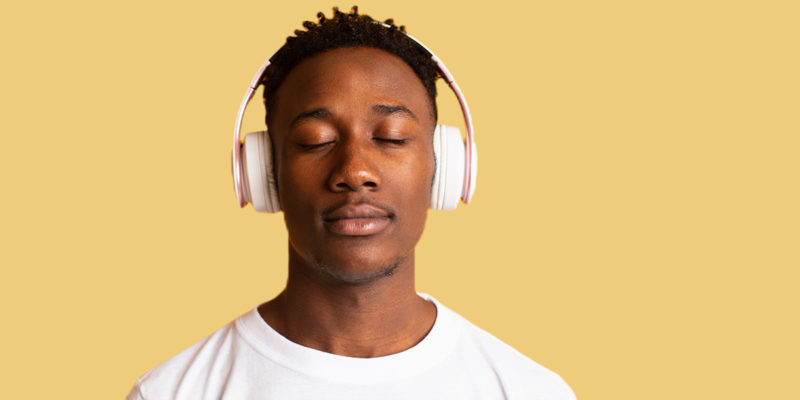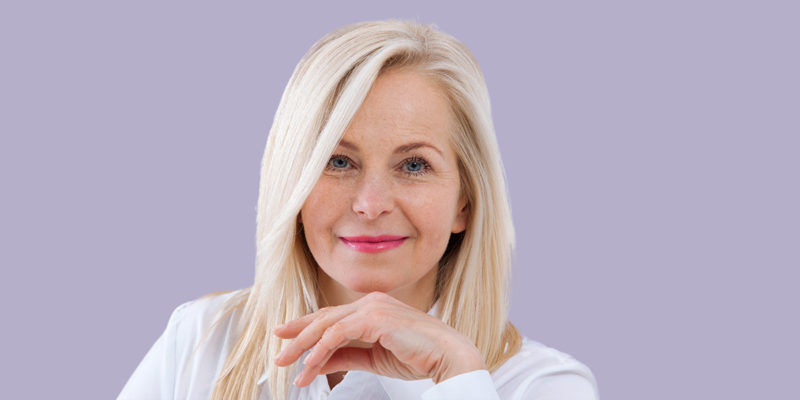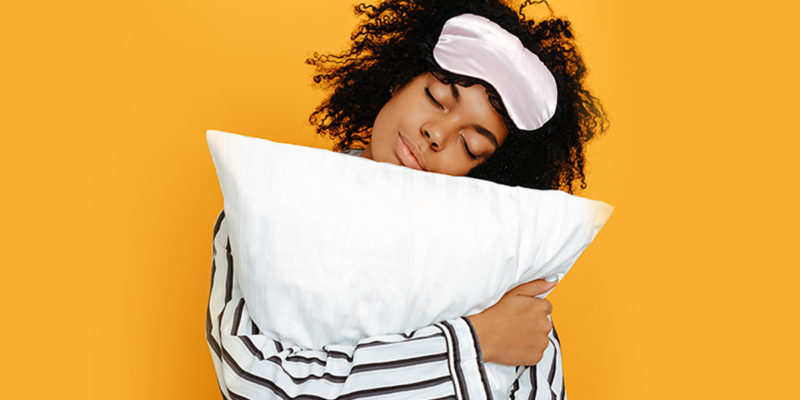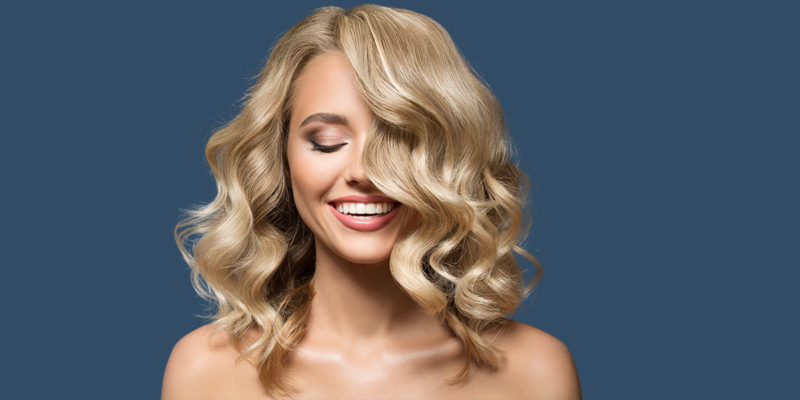Blue Light Insomnia: What You Need To Know

One of the keys to getting good sleep is to have a healthy sleep environment, which is sometimes known as “good sleep hygiene.”
A lot goes into good sleep hygiene—a comfortable mattress and pillow, the right amount of noise or silence, and even the lighting in your room.
Everyone has different needs when it comes to lighting, but if you are trying to narrow down the root cause of your insomnia and can’t figure it out, it could just be that your computer screen or your iPad is to blame.
Scientists are calling this phenomenon "blue light insomnia."

I have to admit that “blue light insomnia” is a pretty counterintuitive concept to me, which tells me that I am outside the normal curve here, because there’s solid scientific evidence backing this theory up.
Discover in 7 questions why you have problems sleeping at night, if you have insomnia, and uncover proven ways to sleep better. Take The Sleep Quiz Now!
Personally I always found bluish light to be “soothing” and warmer hues of light like green to be a bit “harsh” when it comes to sleep, but apparently that is just me.
Research studies back up the idea that blue light is the worst light color for your mood!
and it turns out that lights in the blue wavelength actually disrupt your circadian rhythms!
What are Circadian Rhythms?
Before we can talk about blue light insomnia, we need to talk about circadian rhythms. This is an important biological concept to understand before you can really understand what is going on with blue light insomnia.
When I was in middle school, I vividly remember my first period morning algebra teacher would drag our class outdoors for ten minutes and then bring us back inside. She did this because the sun had finally come up; on the bus ride to school, the sun was still under the horizon or very low in the sky.
She told us that we needed to see the sunlight so we would wake up properly, and that it was unnatural for us to have to wake up before the sun and then sit indoors in our windowless classroom.
It didn’t work for me at all. I was still fast asleep in algebra class—but that’s what happens when you get five hours a night. But I did learn something about science from my algebra teacher, and it stuck with me for the rest of my life.
She taught me about circadian rhythms.
Circadian rhythms are what make you feel alert during the day and sleepy after sunset.
Sometimes the phrase “circadian rhythms” is used interchangeably with the term “biological clock.”
Bonus: Download This 7-Day Sleep Reset that will show you exactly how to tackle your worst sleep problems quickly.
According to the National Institute of Health’s fact sheet on circadian rhythms, circadian rhythms are “physical, mental and behavioral changes that follow a roughly 24-hour cycle, responding primarily to light and darkness.”
The cycle isn’t exactly 24 hours for everyone, and your circadian rhythms are driven in part by your biological clock. In short, circadian rhythms are not actually produced by your environment (they are produced by your internal biological clock), but they are affected by environmental signals.

So your body does produce its own rhythm, but light and dark signals in your environment will have an influence. If your rhythms are out of whack, you can experience problems with hormones, bodily functions, mood and (you guessed it) insomnia.
Years later as an adult, I actually do notice the effects of circadian rhythms. I sleep on a more regular schedule and get plenty of sleep most nights, so I have actually established a proper rhythm.
But I noticed throughout the year how they differing hours of daylight can really disrupt my sleep schedule.
In the winter, when the sun doesn’t come up until later in the morning, I sleep really well! In the summer, when the sun comes up at five in the morning, I sometimes have to cover my eyes to sleep.
And when I do, the sleep I get is always much higher in quality and so much more refreshing than it is if I leave my eyes exposed to the light.
It’s been fascinating finally observing these circadian rhythms my middle school teacher taught me about. And that made me very interested in this blue light phenomenon.
How Does Light Affect Circadian Rhythms and Sleep?
When you start feeling drowsy before sleep, it is because your body is producing a hormone called melatonin. Your body’s master clock is located right above your optic nerves, which means that your body clock is very responsive to changes in optic conditions.
When there is less light, your body clock triggers the production of more melatonin, producing a drowsy state.
When there is more light, your body clock triggers the suppression of melatonin production. This can make you feel more awake—which was why my algebra teacher used to take us outside in the mornings, hoping it would wake us up...and if I'd been getting a regular amount of sleep each night, it would have worked.
The sunlight would have suppressed my melatonin production, and my drowsiness would have abated.
So basically, if you have lights on at night, you are probably disrupting your body’s melatonin production to some degree, which in turn triggers you to feel alert, just as the sun would. And what wavelength of light is the worst? Blue light! According to Harvard researchers, blue light can suppress melatonin for about twice as long as green light. It can shift circadian rhythms by about twice the length of time.
Red lights apparently are the least damaging and will have less of an effect on your melatonin levels than blue or green light.
Blue Light Also Affects Mood

As if that weren’t bad enough, blue light at night presents other dangers to your body and mind. Researchers in 2013 did a study on hamsters to see whether certain colors of lighting has an impact on their mood.
Hamsters exposed to red light at night seemed significantly less depressed than hamsters exposed to blue light at night or even white light (the depressed hamsters skipped out on sugar water, a tasty treat they usually enjoy).
The only hamsters that were better off than those exposed to red light were those that were in darkness.
This is also tied to your body’s master clock. It turns out the same photosensitive cells in your retina that send messages to your body’s clock also send messages to the part of your brain which regulates your emotions.
So while blue light suppresses your melatonin production, it also makes you feel like you’re down in the dumps.
Definitely take your own color psychology into consideration though when you are selecting lighting colors at home. By default, you probably want to choose a red night light or another warm color and steer clear of blue and cooler colors.
But if you have an overly negative association with red light or a very positive, soothing association with blue light, you might do better with blue.
Try red first, though! You may be surprised how well it works.
The Dangers of Modern Life
In our high-tech, constantly connected times, we are in more danger from blue light insomnia than ever! Do you leave your computer screen on all night, projecting that dim indigo glow on your wall? Do you sleep with your iPad on your bedside table? Do you play computer games or watch a lot of television before bed?
Research backs it up
these habits could be depriving you of much-needed rest! Even if you don’t feel like that’s true, it is worth disconnecting and powering down for a few nights to see if it makes a difference. Again, you may be surprised.
There is another hazard in modern times, and that is that we are replacing our warm, incandescent light bulbs with energy-conserving LED lights. While LED lights are better for the environment and for your wallet, be wary of the cooler lights you see for sale. Many LED lights are closer to pure white on the color spectrum than traditional incandescent bulbs. Search for LED lights which are warmer in tone. These are much better for you to use at night.
What Can You Do About Blue Light Insomnia?
Now that you are aware of the blue light insomnia phenomenon, you can do something about it. Some of these suggestions I have already discussed. Here is how you can improve your sleep hygiene and negate the harmful effects of blue light insomnia:
- Replace any blue night lights in your home with red night lights. If you do not like red, at least try to stick with a color which is warmer like orange or yellow.
- Replace cold white lights in your home with warmer-tone lights. When purchasing LED light bulbs, be particularly careful.
- Turn off electronic screens at night, including your television screen, your laptop or desktop screen, and your mobile devices.
- Avoid activities which involve looking at a bright screen 2-3 hours before you head to bed. Instead of playing video games or watching television, consider reading a book or working on a hobby.
- Use good “wake” hygiene too. During the daytime, expose yourself to plenty of sunlight. Open your windows and spend time outside. This will also help to keep your circadian rhythms going.
- Consider not using a night light at all. Many people find they fall asleep more easily and enjoy deeper, more restful sleep in total darkness. Of course, if this is a safety issue for you, you should consider another solution.
- Think about buying a sleep mask. A sleep mask will cost you only a few dollars, and is comfortably designed for nighttime wear. It will block light from your eyes and allow you to sleep soundly. That way you can leave on any lights you choose at night, without exposing your optic nerves. A sleep mask also works great for those summer mornings when the sun gets up before you do.
- Establish a regular sleep schedule. I cannot emphasize this enough. It will do more to establish healthy circadian rhythms than just about anything else. Make sure you are giving yourself plenty of hours to sleep every night, and try to sleep during roughly the same hours every night. This more than anything made a huge difference for me.
Make it your personal challenge tonight to switch off all of your devices and go to sleep in a dark, comfortable environment.
It may be hard turning off your iPad, but once you do, you may never look back!
Say goodbye to blue light insomnia and hell to restful, rejuvenating sleep!






